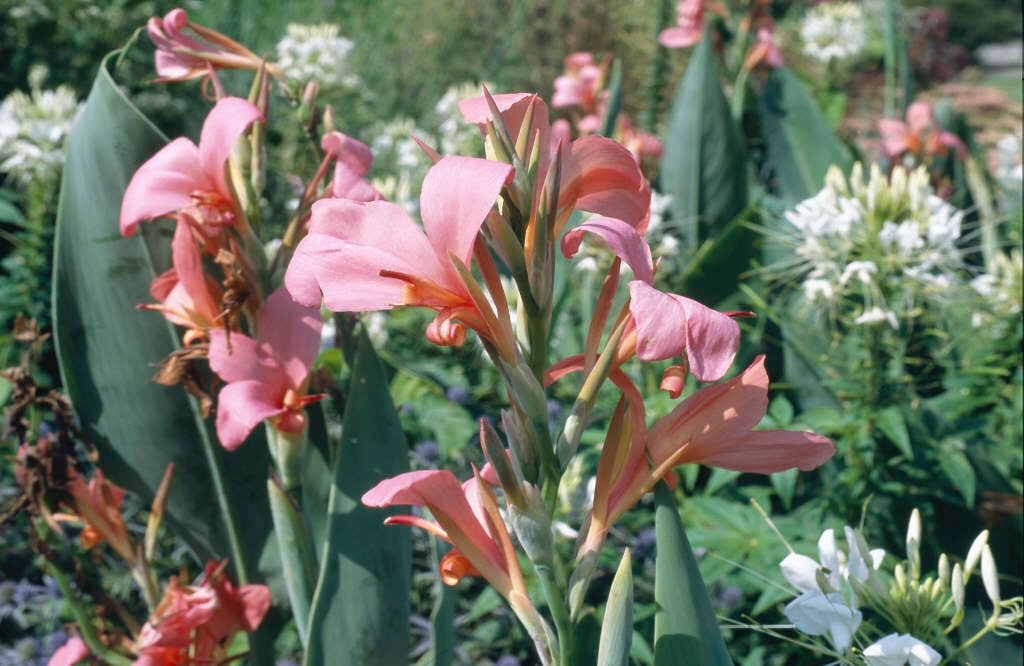Size
Ultimate height
1.5–2.5 metresTime to ultimate height
2–5 yearsUltimate spread
0.1–0.5 metresGrowing conditions
Moisture
Poorly–drained, Moist but well–drainedpH
Acid, Alkaline, NeutralColour & scent
| Stem | Flower | Foliage | Fruit | |
| Spring | Grey Silver Green | |||
|---|---|---|---|---|
| Summer | Pink | Grey Silver Green | ||
| Autumn | Pink | Grey Silver White Green | ||
| Winter |
Position
- Full sun
Aspect
South–facing or West–facing
Exposure
Sheltered Hardiness
H3Botanical details
- Family
- Cannaceae
- Native to GB / Ireland
- No
- Foliage
- Deciduous
- Habit
- Clump forming
- Genus
Canna are rhizomatous herbaceous perennials with erect stems bearing ovate leaves, with showy flowers with showy petal-like staminodes and small, coloured petals and sepals, borne in racemes or panicles in summer and autumn
- Name status
Accepted
How to grow
Cultivation
In summer, water cannas (often bred from Canna glauca) can be placed in containers in ponds with no more than 15cm (6in) of water over the roots. They are also suitable for well-watered borders or conservatories where potted plants can be stood in deep saucers of water. Before autumn frosts, bring plants from outdoors into a frost-free greenhouse or conservatory. Keep the pots moist but not saturated. In April, increase temperatures and plant the sprouted plants out in late May when the risk of frost has passed. See further canna cultivation advice
Propagation
Propagate by division of rhizomes in early spring
Suggested planting locations and garden types
- City and courtyard gardens
- Cottage and informal garden
- Patio and container plants
- Architectural
- Coastal
- Sub-tropical
- Flower borders and beds
- Conservatory and greenhouse
Pruning
Deadhead to promote continued flowering. Leave to die back in autumn
Pests
May be susceptible to glasshouse red spider mite, slugs and caterpillars
Diseases
Canna can be susceptible to canna viruses
Love gardening
Sign up to receive regular gardening tips, inspiration, offers and more
View our Privacy Policy
Get involved
The Royal Horticultural Society is the UK’s leading gardening charity. We aim to enrich everyone’s life through plants, and make the UK a greener and more beautiful place.
